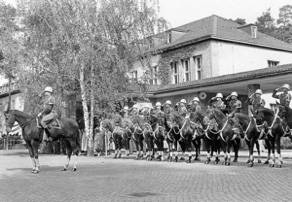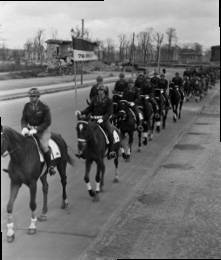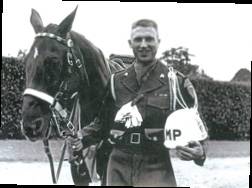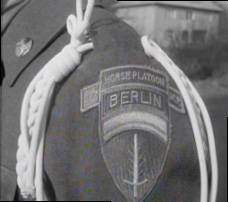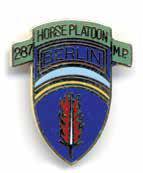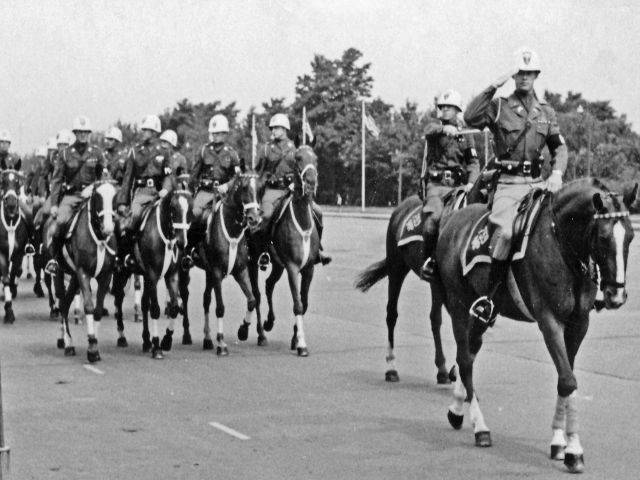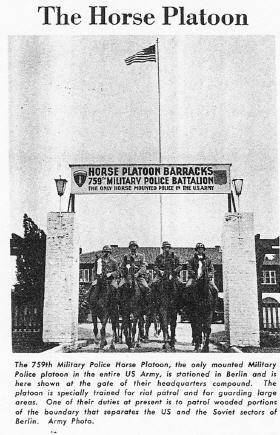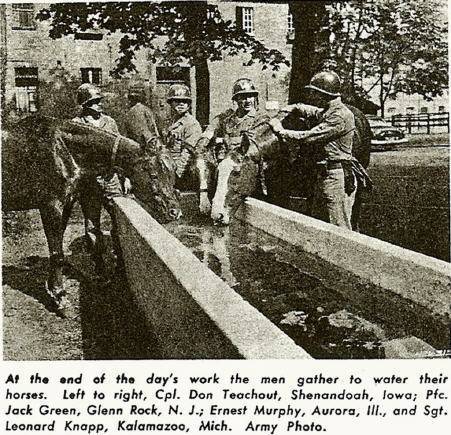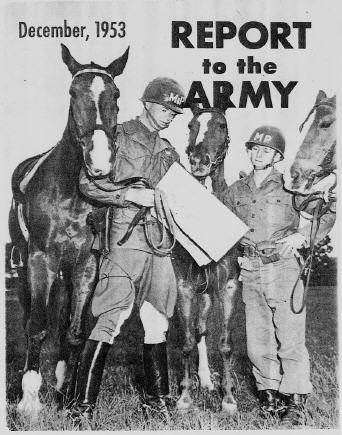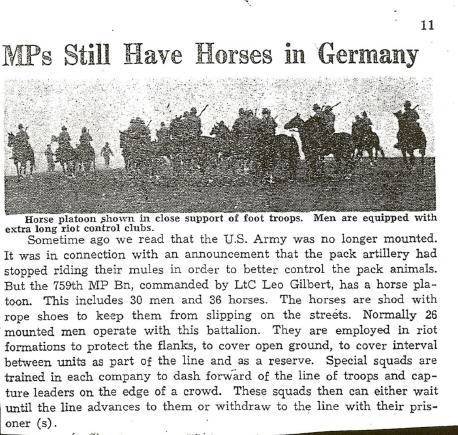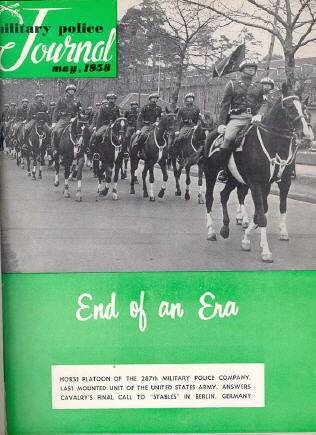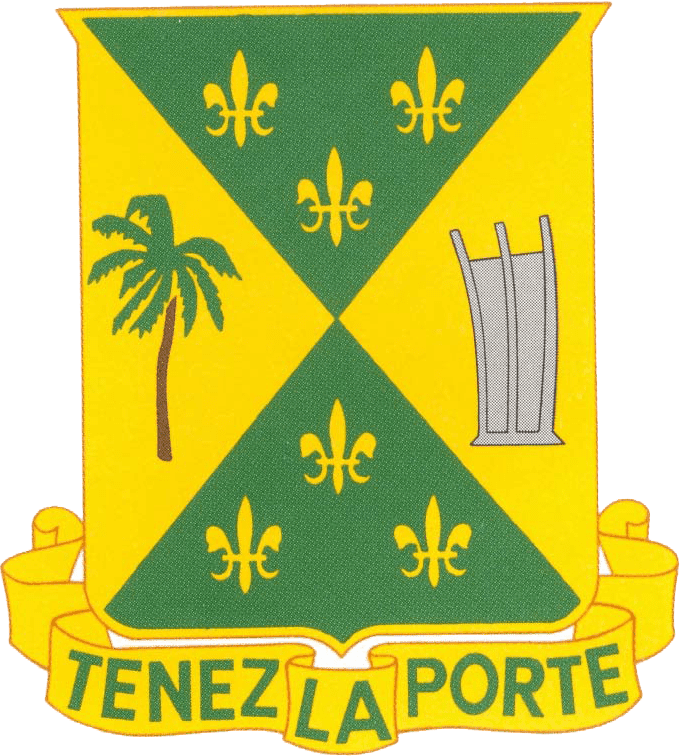From VE Day until early October 1945, the battalion engaged in reorganization and training, a large portion of the battalion attending MP School at Bar-Le-Duc, France. During this period there were many personnel changes in the battalion, as „high point“ Soldiers left for the States and were replaced by „low point“ Soldiers. The battalion was tentatively scheduled for duty in the Pacific theater, then for re-deployment, but finally in mid October 1945 the 759th MP Battalion was chosen for what was considered the prize assignment of the occupation, relocation to the city of Berlin. The Battalion coined the phrase „Law East of the Elbe“, that lasted until the US occupation ended in 1989 after the collapse of the Berlin Wall.
By the end of October 1945, the move to Berlin was completed and the 759th Military Police Battalion relieved the 713th Military Police Battalion of duty. Headquarters, „A“, and „C“ Companies were billeted at 86-89 Kaiserallee, „B“ Company at 10 Geygerstrasse and „D“ Company at 10 Scharfestrasse. Companies „A“, „B“, and „D“ were the patrol companies and Company „C“ the service company, furnishing all escorts, the interior guard for the Command Post and maintaining the Motor Pool at Kaiserallee. In April 1947, the battalion moved to Roosevelt Barracks. The four line companies were assigned patrol areas and HQ Company personnel assumed responsibility for escorts, special details and operation of the Military Police District Headquarters. One of the initial duties assigned to the battalion was the training and equipping of a cadre of German police. The battalion kitchens also fed the local populace and organized German American Youth Clubs.
On Oct. 20, 1947, the 759th Military Police Battalion was re-designated the 759th Military Police Service Battalion.
In 1948, the battalion assisted in the Berlin Airlift during the Soviet blockade of the city. The Battalion served so well during the blockade of the city, that the memorial „Luftbrucke“ which was subsequently built to commemorate the event is included on the Distinctive Unit Insignia of the 759th Military Police Battalion.
In August 1949, the 513th Military Police Service Platoon and the 18th Military Police Service Platoon was formed as a provisional company and designated Company „E“ with duties of interior guard of the Berlin Military Police Headquarters Compound.
In March 1950, the battalion prepared to move from Roosevelt Barracks to McNair Barracks in the city of Berlin. „A“ Company made the initial move on March 29, 1950. The movement of the entire battalion was not completed until June 11, 1950. At that time all company messes were abolished and a Battalion Consolidated Mess, which had been partially operating since April 28, 1950, was officially established.
The Battalion Motor Pool was established in Andrews Barracks and remained the motorpool for the Military Police until the inactivation of Berlin Brigade. Early in March 1950, the battalion was relieved of some of its military police commitments by Company „C“, 382nd Military Police Service Battalion, stationed in Bremerhaven, Germany, the 526th Military Police Service Company, stationed in Hanau, Germany and the 511th Military Police Service Platoon, stationed in Mannheim, Germany. These organizations, augmented by the 513th and 18th Military Police Service Platoons, assumed the military police functions of Berlin Military Post, and the battalion went into intensive tactical training. On June 1, 1950, the battalion resumed its police duties in Berlin.
On Nov. 20, 1950, the 18th and 513th Military Police Service Platoons were inactivated and the 759th Military Police Service Battalion was redesignated the 759th Military Police Battalion under TO&E 19-55, 19-56, 19-57, less Company D. On Nov. 24, 1950, the Horse Platoon, previously attached to the 16th Constabulary Squadron was deactivated and personnel and all equipment were transferred to the 759th Military Police Battalion. The personnel remained intact as a Provisional Horse Platoon with authorization for one officer, thirty-seven Soldiers and fifty-two horses.
In addition to the battalion’s primary military function of policing Berlin, it also operated the Post Provisional Guardhouse, and two checkpoints on the corridor through the Soviet Zone. One checkpoint was located at the Hemelin Bridge (Check Point Bravo) in Berlin and the other was at Helmstedt, Germany (Check Point Alpha-within the British Sector of Northern Germany). A Highway Patrol Section with three patrol sedans patrolled the corridor from Berlin to Helmstedt. The battalion was inactivated Nov. 2, 1953 in Berlin, Germany.
